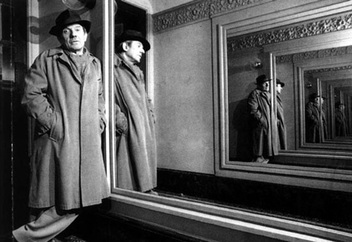 French philosopher Gilles Deleuze. Again and again.
French philosopher Gilles Deleuze. Again and again. What struck me about "Too Many Cooks" was its exemplification of Deleuzian difference. In his masterpiece Difference and Repetition, Gilles Deleuze tries to get beyond the primacy of sameness and fixed identity to present a concept of pure difference that destabilizes all of Western philosophy. While we tend to categorize and perceive things in the world according to their resemblances, says Deleuze, our need to equate and categorize masks a primal fear of realizing that everything in this universe is ultimately singular, unrepeatable, even abominable. No two things or events are ever the same: in fact resemblance itself is an illusion at the most fundamental level of experience. When a thing or event is repeated over and over, we would like to think that its sameness becomes increasingly apparent. But as "Too Many Cooks" shows us, a thing repeated again and again eventually reveals the pure difference that burns at its core. An old adage is reversed: "The more things stay the same, the more they change."
As the theme song of the fictional TV show plays on, locked in some eternal repeat setting, we begin to sense something terrible inhabiting this and every other instance of naive, kitschy cliché. Thanks to the power of repetition, this terrible something -- this pure difference where all judgement fails and perception itself becomes indistinguishable from hallucination -- becomes visually manifest in the images that make up the second half of the video. What we are looking at in "Too Many Cooks" is the obscene reality that lurked beneath the gaudy surface of every family sit com whose reruns we watched and re-watched while growing up.
 RSS Feed
RSS Feed